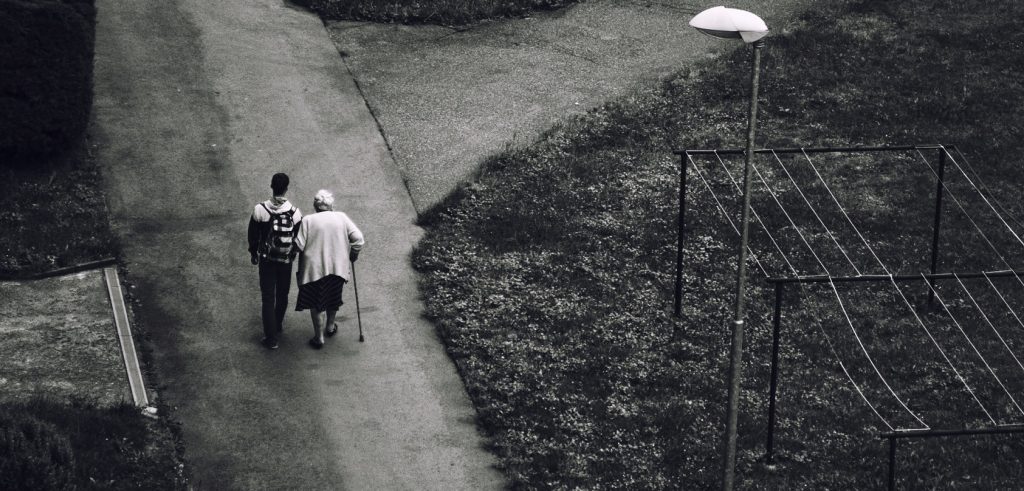Finding Solace in the Past: Six Benefits of Family History – Especially When the World Is in Crisis
As the founder of Ancestors unKnown, I’m a fierce advocate for the benefits of family history research, celebrating our often-overlooked ancestors, taking ownership of our identities, and re-writing our own stories. It’s powerful stuff – on most days.
Yet, I must admit, there are times when I question whether any of it matters. If the future is looking bleak, how can I justify my focus on the past? With wars, ethnic cleansing, and other forms of violence destroying lives in so many parts of the world, from Syria, Palestine, and Ukraine to the Democratic Republic of Congo and Myanmar, then combined with climate, housing, and financial crises that are affecting so many of us, it feels like the world is facing unprecedented levels of unrest and uncertainty.
Paradoxically, while the world’s turmoil may make history education, family history research, and identity development seem less urgent, these challenging times might necessitate a renewed focus on our families and historical narratives. Indeed, there are profound links between our mental health and the connections we forge with the past.
6 Benefits of Family History During Challenging Times
To justify my unwavering commitment to the ancestors, here are six reasons why our histories matter and why family history research can benefit our mental health, especially during times of global crisis.
Broaden Your Perspective
Across every generation, our ancestors have overcome great adversity. This is especially true for our ancestors who were marginalized, oppressed, and likely written out of mainstream historical narratives. In so many cases, the less you know about their stories, the more likely they experienced trauma and hardships in their lifetime.
As we learn and talk about the challenges our ancestors experienced, we are better equipped to put our own adversities into perspective. For example, among young adults, research has shown that they experience a “positive life-changing effect related to their perceived importance” when they know details about their parents’ history of living through conflict, such as violent political upheaval.

Further, when we know about the challenges our ancestors faced, we are reminded we are not the only generation to experience conflict and turmoil, and we are not alone in our struggles.
Increase Belonging
Family history research and conversations about the past are a useful tool to increase a person’s sense of belonging and challenge any feelings of isolation or disconnection from others. Having strong ties to the past, including knowing a family’s intergenerational stories, can help a person feel more connected to something bigger than themselves.

According to Dr. Robyn Fivush, intergenerational narratives are even more important to establish a young person’s sense of belonging and identity than their personal stories. She explains: “It is these family stories that provide a sense of place in the world, of belonging and identity, that goes beyond personal experience to encompass a larger sense of who one is and should be in the world.”
Strengthen Identity
In close connection to a person’s sense of belonging, their identity is strengthened with increased knowledge about family history. By researching and sharing one’s family history, a person can better understand what (and who) made them who they are today, including their values, beliefs, and traditions.
Especially for those who are struggling to find their place in an upside-down world, feeling better rooted in the past provides a sense of strength, clarity, and purpose that comes with a confident identity.
Inspire Hope
Family history knowledge often highlights the remarkable resilience of our ancestors. With this information, our own sense of resilience and hope can increase. According to Harvey L. Nicholson’s research among African Americans, “having traced one’s family roots (i.e., personally or a family member of the respondent) was associated with significantly higher levels of mastery and self-esteem and reduced feelings of hopelessness.”
Knowing how our ancestors survived and/or resisted through difficult times can spark a sense of hope, pride, and optimism for the future. Moreover, we can learn valuable lessons from their methods of coping and survival, which could provide us with more strength in the present and future.
Connect with Others
Some of the most impactful methods of family history research, and all historical research, begin with conversations and asking questions. While family members may feel worry and stress about present circumstances, this could be a valuable opportunity to take a time-out and spark a conversation about the past. Whether this is an oral history interview with a family or community elder, or brainstorming questions you and your peers have about your ancestors, the resulting discussions can be informative, inspiring, and enjoyable.

Want to know more about the benefits of connecting with family? Check out our blog post: 5 Benefits to Researching Family History Together.
Increase Family Cohesion
When family stories are shared across generations, the conversations can act as a catalyst for increasing cohesion within a family. Questions and memories can be exchanged to help family members better understand each other, relate to each other experiences, as well as reveal meaningful details about the past.
Conclusion: Family History Matters
Family history knowledge is a valuable resource that can benefit the mental health and well-being of people of all ages. As evidenced by research among adolescents, those who know more about their family history tend to have less anxiety, higher self-esteem, more locus of control, better family functioning, and less behavioral problems.
By understanding our past, we can better understand ourselves and the world around us. We can also find strength and inspiration in the stories of our ancestors. Therefore, increasing knowledge and conversations about the past can be especially beneficial during times of uncertainty and global unrest.

If you are interested in learning more about your family history and using it as a tool to help family members navigate tumultuous times, check out the resources we have available for family researchers. We also have teaching materials for educators to introduce these concepts to young people in classrooms.



